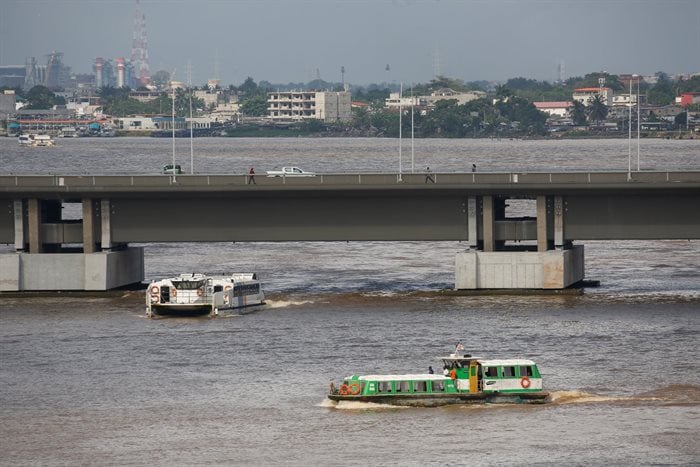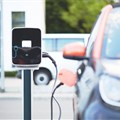Ivory Coast Abidjan commuters turn to boats to escape traffic jams

The government estimates that Abidjan residents spend about three hours a day in transit, often on congested, poorly kept roads. Almost every neighbourhood in the city of five million is on the water, presenting an attractive alternative.
The government liberalised transport on the lagoon in 2016 to attract more private boat operators, and plans to build a modern water station in each city district, said Aristide Gahie, director of planning at Abidjan's urban mobility authority.
"There is real movement underway on the lagoon and the state is working to have boats that are safer for the population," Gahie said.
About 100,000 people per day now travel by water in Abidjan, nearly half in traditional boats. The state wants to see 300,000 travellers per day in the next five years and to have 200 modern boats in operation, compared to about 50 now, he said.
Bus boats brought in
To take advantage of this potential market, the company Aqualines and its South African partner Nautique have brought in bus boats that can carry more than 200 seated passengers.
The trip from the Yopougon district to downtown costs 300 CFA francs ($0.52) and takes 10 minutes on one of Aqualines' boats, compared to an hour-long journey by road that costs twice that. The boat station is crowded all day.
The company plans to increase its fleet to serve 100,000 passengers per day in the next two to five years, compared to around 12,000 passengers now, said Marie-Laure Ehui, marketing manager at Aqualines.
"People need to be reassured. We are in Africa and when it comes to water, people are reluctant. But if we guarantee them safety and comfort, they will come," she said.
Christelle Ahui, a sales representative at a local firm, used to wake up between 4am and 5am to be on time for work. Now she wakes up at 6am and takes the water bus.
"With the boat it's faster and you avoid the traffic jams. I also have asthma and I can't stand the heat. That's why I opted for the water bus," Ahui said, after buying her ticket at Yopougon station to go to the Treichville district.
Source: Reuters

Reuters, the news and media division of Thomson Reuters, is the world's largest multimedia news provider, reaching billions of people worldwide every day.
Go to: https://www.reuters.com/





